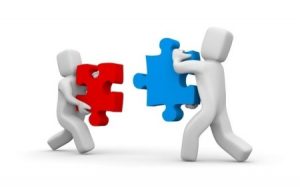
Positive relationships in society are the enveloping means for good mental health. Mental illness comes from imbalance in the mind and body, which comes from imbalance in society, which is further caused by imbalance with nature. By fixing our social connections, we bring ourselves into balance with nature, and such balance will positively influence not only our mental health, but also our general health and well-being.
Whether or not we are aware of it, positive relationships in society give our lives a sense of meaning and worth. It is no wonder, then, that the more we become divided, isolated and lonely, as is the case in much of today’s world, then the more we also see mental illness on the rise.
By nature, we are social creatures and our lives are full of relationships: at home, in the workplace, with friends, relatives, acquaintances, strangers, and through various media. On one hand, we all want to feel good and enjoy positive relationships. On the other hand, we find ourselves dealing with more and more inequality and conflicts.
When we are young, we learn that we need to behave and speak a certain way in society, because if we do not, then we can evoke a negative reaction from other people. We thus apply certain rules and codes of conduct to ourselves in order to fit in, and while they may contribute to advancing us personally and getting us into certain career paths, they often fail to serve building meaningful relationships, which is what truly makes us happy and gives us emotional stability. We thus find ourselves living in a world where divisiveness, isolation, loneliness and stress are on the rise, and our health and well-being thus become negatively affected as a result.
As important as positive social relationships are to our health and well-being, and in both preventing and treating mental illness, they are tremendously under-emphasized in today’s world. On one hand, we are evolving outside our past boundaries of several classes and hierarchies, which made our lives much clearer and simple, and have achieved a state of more equality. On the other hand, such equality is superficial and it leads to more and more confusion and anxiety.
The great paradox of our times is that our world has become like a small global village, where our interconnectedness and interdependence becomes tighter worldwide, but on the other hand, we find ourselves becoming more and more internally divided and hateful in our attitudes toward each other.
While it stands to reason that the more dependent we become on each other, the more we should learn, apply and exercise positive relations to realize that dependence harmoniously, the opposite is the case: that we keep trying to use each other for self-benefit, and we wish to impose our own views and egoistic decisions on others. This self-centered attitude contradicts the principle of an egalitarian society, where we are each equally important even though we are each different.
Therefore, we have a fateful challenge to meet in our times, where if we succeed in standing up to this challenge, then we will be able to solve several problems in our world, with mental illness among them.
The challenge is: How can we realize our increasing interdependence harmoniously?
To this end, we need to establish a social-educational system that will open our eyes to the deep level of interdependence in all areas of our lives, which should amplify the indispensable need for positive social connections. We can begin with concrete steps to acquire strong and solid relations.
First, it is important to realize that in this tightly interdependent world, every piece is indispensable to complete the full picture of reality, like in a puzzle. By affecting one another, we affect the whole system, for better or for worse. It is a system that each person is part of and that influences each person directly. Do we want to benefit from the fact that we have positive social relationships and a warm environment? Certainly, every person wishes to live in such a reality. It is then in our own interest to transform our actions and intentions from harmful exploitative ones to mutual understanding and care.
The way to achieve this goal is not rocket science. Yet, it is also not obvious to us because we have not been taught how to do it. However, there is a method of connection that we can implement in order to bring about improvements in our social relationships, and the more we undergo such connection-enriching learning, the more we will find ourselves getting along much better, on one hand, and lessening the cases of myriad problems in our lives, including mental illness, on the other hand.
Written/edited by students of Kabbalist Dr. Michael Laitman.
Featured in Quora